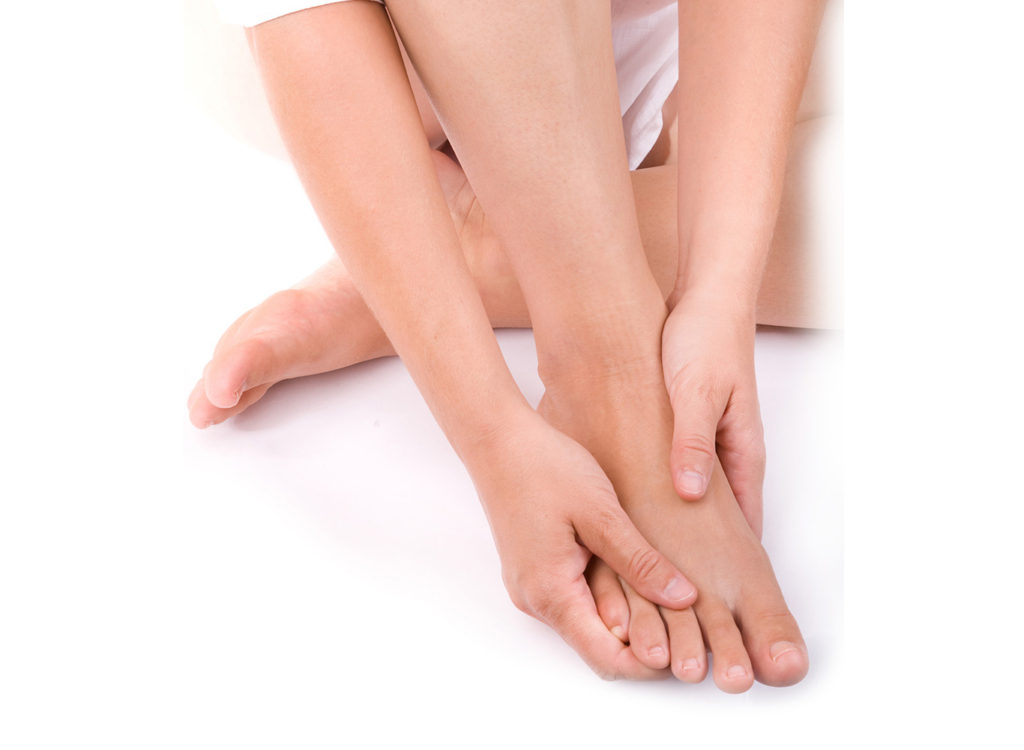- 05
- Oct
- 2017
Say No to Neuropathy with Acupuncture
- Posted ByMichael Kowalski
- InDr. Michael Kowalski, Holistic Medicine, News
What Is Peripheral Neuropathy?
An estimated 20 million people in the United States have some form of peripheral neuropathy, a condition that develops as a result of damage to nerves in the extremities. (Neuropathy means nerve disease or damage.) Peripheral neuropathy affects different people in different ways. For some, it can be a loss of feeling (numbness or tingling) in the feet, hands or both. People may feel as if they are wearing gloves and stockings when they are not. Others may feel sharp pain in their limbs, like walking on shards of glass. The limbs can feel overly sensitive or like a burning sensation, especially at night. Some people may end up with muscle weakness. For others, it can appear as a combination of these symptoms.
Peripheral neuropathy symptoms often begin slowly and gradually. For some, it appears suddenly. Many chronic neuropathies worsen over time. It often starts in the feet and can spread up the legs or into the hands. Once in the hands, it can spread up the arms. Others may reach a plateau stage, where symptoms stay the same for many months or years. In some cases the symptoms are mild. Sadly, for far too many people the symptoms are severe enough to affect their quality of life. If it causes numbness in the feet, it may be difficult to balance while walking, or become too dangerous to drive a car. If it causes loss of feeling or function in the hands, it may become difficult to button clothing.
What Causes Peripheral Neuropathy?
Diabetes, with its chronically high levels of blood sugar, is a leading cause of peripheral neuropathy in the United States. Excess sugar spills out of the blood vessels and coats the nerve sheaths, which can damage the nerves. About 65 percent of people with diabetes have some form of nervous system damage. Mild damage can even occur in people with pre-diabetes.
Cancer patients being treated with chemotherapy can develop neuropathy as a common side effect of some of those medications. Some cancer patients have to stop their chemo because the neuropathy symptoms become too severe. Radiation therapy can also cause nervous system damage. For some cancer survivors, chemo-induced neuropathy symptoms persist long after the chemo is stopped.
Physical injury can also cause peripheral neuropathy. Auto accidents, falls, sports injuries and surgical procedures can cause nerves to become partially or completely damaged. Nerves can also become trapped or compressed by repetitive stress, such as in ulnar neuropathy or carpal tunnel syndrome.
Infections can also lead to neuropathy. An example of this is post-herpetic neuralgia, a painful condition that follows the shingles. Pain in damaged nerves can last long after the shingles is gone. Other causes include autoimmune conditions like rheumatoid arthritis, Sjogren’s syndrome and lupus, or nutritional deficiencies (including B12, thiamine, and folate).
Treatments for Peripheral Neuropathy
Treat The Root Cause
The first step in treating peripheral neuropathy is to address what causes it. Peripheral nerves can regenerate, as long as the nerve cell itself has not died. This can lead to functional recovery over time. Peripheral nerves typically regenerate within 2 to 5 months. If the cause of the condition can be corrected, the neuropathy may resolve in the same general time frame.
When it comes to diabetic neuropathy, dietary changes are always the smart approach. The standard blood test to check whether you have diabetes, are pre-diabetic, or have normal blood sugar metabolism is the hemoglobin A1C test. If your test result is 5.7 or higher, you should strictly limit your carbohydrate intake, especially sweets. With less sugar in the blood, there is less risk of sugar spilling out and further damaging the nerves. Managing your hemoglobin A1C levels can even reduce neuropathic symptoms.
Exercise can reduce cramps, improve muscle strength, and prevent muscles from wasting away. Smoking cessation is really important because smoking tightens the blood vessels that supply nutrients to the peripheral nerves and can worsen neuropathic symptoms. Self-care skills such as detailed foot care can ease symptoms, improve quality of life and promote nerve regeneration.
Symptom Management
Neuropathic pain, or pain caused by injury to nerves, is often difficult to control. Mild pain may be alleviated by over-the-counter nonsteroidal anti-inflammatory drugs (NSAIDs) such as ibuprofen. In more difficult cases, doctors may refer to a neurologist. A commonly prescribed medication by neurologists, and probably the most effective drug for peripheral neuropathy, is gabapentin. Antidepressants are also sometimes prescribed.
The Role of Acupuncture
Neuropathy symptoms, including numbness, tingling and other types of nerve pain, can be greatly improved in many cases by acupuncture. Special acupuncture points in the feet and hands can stimulate nerves to regenerate. Although acupuncture has been practiced for many centuries, more recently there is a growing body of research evidence that acupuncture is effective for neuropathy. The fact sheet on Peripheral Neuropathy by the National Institute of Neurological Disorders and Stroke (a branch of the National Institutes of Health) notes that, “Acupuncture, massage and herbal medications also are considered in the treatment of neuropathic pain.” To read the NIH Fact Sheet, click here.
At the Acupuncture & Holistic Health Center, we use acupuncture, nutrition, diet and other holistic therapies to address the underlying cause of neuropathy and relieve its symptoms. Our evidence-based acupuncture style is to treat each person holistically with Five Element acupuncture, while integrating the best evidenced acupuncture points for effective symptom management. We collaborate with conventional physicians in an integrative, patient-centered approach. For more information, you may contact us at (904) 296-9545. If you or someone you know is suffering with neuropathy, our holistic, multi-disciplinary methods may be just what the doctor ordered.

